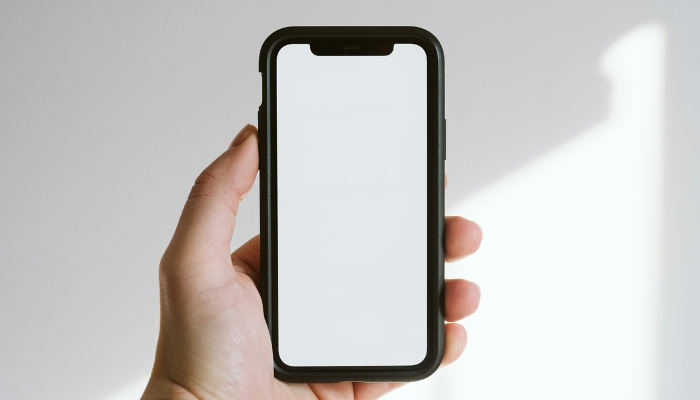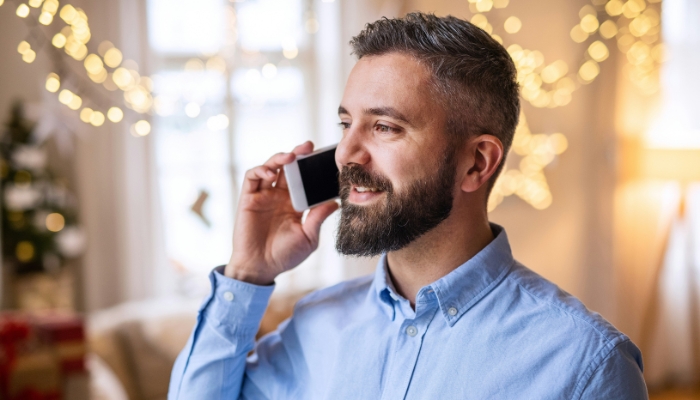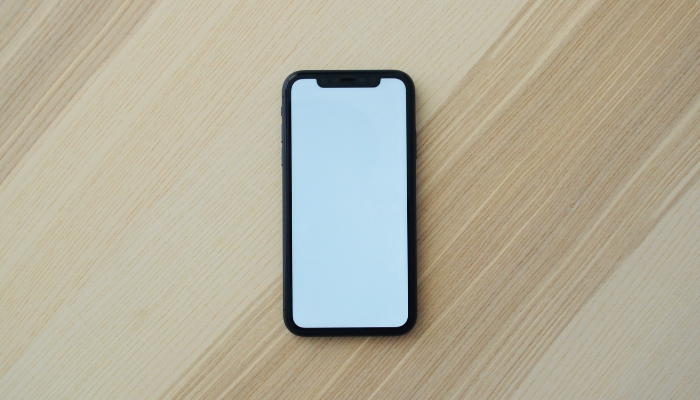
In the world of smartphones where compatibility and versatility often sit on opposite ends of the spectrum, you might find yourself wondering, can iPhones be used on any carrier? As you navigate the landscape of sleek Apple design and the intricate web of global telecommunications, it’s essential to unpack the complexities surrounding iPhone carrier compatibility.
Yes, iPhones can generally be used on any carrier if they are unlocked and compatible with the carrier’s network technology. It’s important to verify this compatibility with the carrier and Apple, especially for older iPhone models.
You’ll have to consider factors such as carrier locks, SIM-free options, and the potential impact on iPhone functionality. We’ll explore these considerations further, so you can make the most informed decision about your iPhone’s carrier compatibility. Stay with us, there’s much more to uncover about can iphones be used on any carrier.
Understanding Iphone Carrier Compatibility
To fully enjoy your iPhone’s features, you need to understand its carrier compatibility. This compatibility determines whether your iPhone will work with your current carrier or if you need to switch providers.
An unlocked phone is a device that isn’t tied to any specific carrier. It’s like a free agent in the world of cellular networks. You can use it with any compatible carrier, giving you the freedom to shop around for the best plans and services.
On the other hand, a carrier-locked phone is linked to a specific provider. If you have a carrier-locked iPhone, it’ll only work with that specific carrier, unless you unlock it.
Major carrier networks generally support both unlocked and carrier-locked iPhones. But not all iPhones are compatible with all carriers. The compatibility depends on the iPhone model and the carrier’s network technology.
What Is a Sim-Free Iphone?

While we’re on the subject of unlocked iPhones, let’s explore the concept of a Sim-free iPhone, which takes the idea of carrier freedom to a whole new level. A sim-free iPhone isn’t tied to any specific carrier. Unlike carrier-locked iPhones, which are restricted to a particular network, these iPhones give you the liberty to choose or change your network provider at will.
Here’s a bit more detail on how the two types differ:
Carrier-Locked iPhones:
- Tied to one specific carrier
- May have contractual obligations
Sim-Free iPhones:
- No ties to any carrier
- Freedom to choose your network provider
How to Check Your Iphone’s Carrier Lock?
Unsure of your iPhone’s carrier lock status? Here’s how you can find out. Whether you’re using an iPhone Plus or any other model, the process is pretty straightforward.
First, head to ‘Settings’ on your iPhone, then tap ‘General’, and finally ‘About’. Scroll down to find the ‘Carrier Lock’ status. If it states ‘No SIM restrictions’, congratulations, you have an unlocked device. This means your iPhone isn’t tied to a specific carrier, allowing you to use it on various cellular networks.
However, if it shows ‘SIM locked’, it’s a carrier-specific iPhone. This means your iPhone is locked to a particular carrier, and you’ll need to get it unlocked to use it with another carrier.
You can also check your carrier lock status by inserting a SIM card from a different carrier into your iPhone. If it works, your device is unlocked.
Unlocking Your iPhone for Different Carriers

Unlocking your iPhone to use it with various carriers can be a freeing experience. This process allows you to switch cell service providers without needing a new phone. It’s particularly useful if you’re travelling internationally or simply want to switch to a carrier offering better deals or coverage.
Understanding Carrier Locks
When you buy an iPhone, it might come with a carrier lock on iPhone meaning it is locked to a specific carrier. This means the software code on the phone is configured to work only with the current SIM card of that carrier.
Major cell phone companies often lock devices to their networks as part of their cellular plan or contract terms. This can be limiting if you wish to use your iPhone with a different compatible network.
The Process of Unlocking
The process of unlocking an iPhone involves removing these restrictions. First, check if your device is indeed locked. You might receive an error message if you try using a SIM card from a different carrier.
Contact your carrier’s customer service to confirm the lock status. They can also guide you on the unlocking process, which usually involves providing your phone’s IMEI number.
Carrier Policies and Legal Considerations
Each carrier has its own policy for unlocking iPhones. For example, AT&T and T-Mobile carrier model might have different requirements compared to Japanese carriers or worldwide carriers. Generally, carriers will unlock your phone after a certain period of time has passed, like the 60-day lock period or 120-day lock period. For military personnel, carriers often have special policies allowing for earlier unlocking.
It’s essential to understand that unlocking iPhones is perfectly legal, provided you adhere to the terms of service of your cellular contract. The carrier in question must comply with the unlocking request if you’ve met their criteria, which usually includes completing the monthly installments of your payment plan or reaching the end of a day trial period.
Post-Unlocking: Compatibility and Carrier Switching
Once unlocked, your iPhone is carrier ready. This means you can now use SIM cards from different cell carriers, including American carriers or any single carrier operating on compatible carrier bands.
However, note that not all iPhones will work with all networks due to different carrier network technology. It’s wise to check the tech specs of your iPhone model to ensure compatibility.
Additional Considerations
- Installment Plans: If you bought your iPhone on an installment plan, ensure all payments are completed.
- Carrier Discounts and Subsidies: Be aware that unlocking might affect any carrier discounts or subsidies you were receiving.
- Replacement Devices: If your iPhone is a replacement device, check with the carrier about unlocking it.
- Software Updates: Occasionally, software updates can re-lock a device. Keep this in mind and check the actual software and baseband software version after updates.
Unlocking your iPhone offers a world of flexibility, especially for those who travel or wish to optimize their mobile plans. Always ensure that you follow the legal and contractual guidelines provided by your carrier to enjoy a seamless transition to a new network.
Impact of Carrier Switch on Iphone Functionality

Switching carriers can have a noticeable impact on your iPhone’s functionality, and it’s important to know what to expect. If your iPhone is carrier locked, you’ll need to unlock it before you can switch to a different wireless carrier. Carrier locked iPhones are tied to a specific cellular carrier, usually one of the major carriers, and can’t be used with any other service.
When you switch carriers, you mightn’t have access to certain features. For example, some carriers support features that others don’t, such as Wi-Fi calling or visual voicemail. So, you’ll need to check with your new carrier to see what features they support.
Another thing to consider is the iPhone upgrade program. If you enrolled in this program through your old carrier, you might need to pay off your iPhone in full before you can switch carriers. Alternatively, you might be able to transfer your upgrade program to your new carrier, but you’ll need to check with them to see if this is possible.
Considerations Before Changing Carriers
Before you decide to change your network, there are several key considerations you’ll need to keep in mind. The process isn’t simply about choosing a new cellular service provider; it also involves understanding the differences in carrier compatibility and analyzing the costs associated with the switch.
Here are some points to consider:
Carrier Models
- Not all iPhones are compatible with every carrier. Certain models may not support the frequency bands used by some providers, impacting your phone’s performance.
- Be aware of the differences in carrier compatibility. For instance, GSM and CDMA are two different technologies used by carriers. Some iPhones only support one of these.
Contractual obligations
- Check your contract term with your current provider. You may be in the middle of a contract, and breaking it might incur a termination fee.
- It’s essential to weigh the cost of this fee against the benefits of switching to a new provider.
Using Iphones With International Carriers
When traveling abroad, it’s essential to know how to use your iPhone with international carriers. iPhones, including the iPhone SE and iPhone XR, have a wide range of carrier support, making them a popular choice for frequent travelers.
To use your iPhone with international carriers, you’ll first need to ensure your phone is unlocked. This means it’s not tied to a specific carrier. If your iPhone is locked, you’ll need to contact your current carrier to unlock it. Once unlocked, you’re free to use a carrier SIM card from any international carrier that supports your iPhone model.
Next, you’ll need to purchase a carrier SIM card from the international carrier you wish to use. This card contains the information needed for your iPhone to connect to the carrier’s network. Once the SIM card is inserted, your iPhone should automatically configure itself to work with the new carrier.
Conclusion
In essence, you can use your iPhone with any carrier, but it’s not always straightforward. Remember to check if your iPhone is carrier-locked and take steps to unlock it if necessary.
Switching carriers can affect your iPhone’s functionality, so consider this before making a change. But don’t worry, even if you’re traveling, you can still use your iPhone with international carriers. Always make sure to do your research to get the best from your iPhone!
FAQs on Can Iphones Be Used on Any Carrier
Can Any iPhone be Used with Any Carrier?
Whether your iPhone is compatible largely depends on if it’s locked to a specific carrier and on the device’s tech specs. Most newer models, like the iPhone 14 Plus or iPhone 15 Plus, come carrier-unlocked and support a variety of carrier bands, enabling compatibility with many carriers worldwide. However, some older models like the iPhone 8 may have limitations, especially if they are the GSM-only version.
How Do I Know If My iPhone is Carrier Locked?
You can check if your iPhone is carrier locked by inserting a current SIM card from a different carrier. If you receive an error message, it’s likely locked. Alternatively, you can contact your carrier’s customer service for confirmation.
What are the Steps to Unlock an iPhone?
To unlock your iPhone, contact your current carrier. They will guide you through the process, which usually involves verifying your account details and ensuring any installment plans or contract obligations are fulfilled. Carriers have different policies, with some requiring a period of time to elapse, such as a 60-day lock period or a 120-day lock period.
Will Unlocking My iPhone Affect Its Functionality?
Unlocking your iPhone won’t impact its functionality. It will still receive software updates and work as before. The only difference is the ability to use other cell service providers. However, be aware of carrier-specific features that may not be available with different carriers.